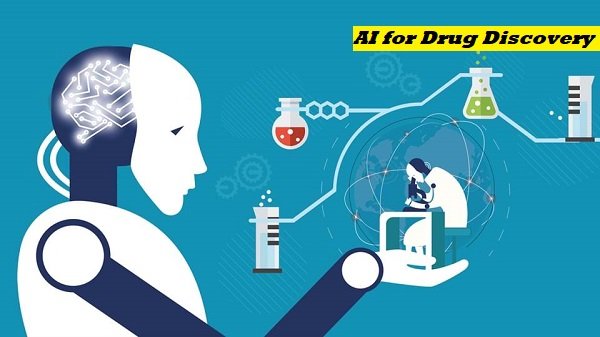Role of AI in Drug Discovery : The development of new drugs is a complex and expensive process that can take years or even decades. In recent years, however, artificial intelligence (AI) has emerged as a powerful tool in drug discovery. AI can be used to analyze vast amounts of data, identify patterns, and make predictions about which compounds are most likely to be effective in treating specific diseases. In this article, we will explore the role of AI in drug discovery.
Identifying New Drug Targets
One of the primary ways in which AI is being used in drug discovery is to identify new drug targets. Drug targets are specific proteins or other molecules that are involved in disease processes and can be targeted by drugs. By analyzing large datasets of genetic and molecular data, AI can identify new drug targets that were previously unknown or overlooked.
Predicting Drug Efficacy
AI can also be used to predict the efficacy of new drugs. By analyzing data from clinical trials and other sources, AI algorithms can make predictions about which drugs are most likely to be effective in treating specific diseases. This can help to speed up the drug development process by identifying promising compounds early on and reducing the number of compounds that need to be tested in clinical trials.
Designing New Drugs
AI can also be used to design new drugs. By analyzing the chemical structures of existing drugs and other compounds, AI algorithms can identify patterns and make predictions about which compounds are most likely to be effective in treating specific diseases. This can help to speed up the drug development process by identifying promising compounds early on and reducing the number of compounds that need to be synthesized and tested.
Reducing Costs and Time
One of the primary benefits of using AI in drug discovery is that it can help to reduce costs and time. Drug development is a complex and expensive process that can take years or even decades. By using AI to identify promising drug targets and compounds early on, researchers can reduce the number of compounds that need to be tested in clinical trials and speed up the drug development process. This can help to reduce the cost of drug development and make new drugs more accessible to patients.
Challenges of AI in Drug Discovery
Despite the many benefits of using AI in drug discovery, there are also a number of challenges and limitations. One of the primary challenges is the need for high-quality data. AI algorithms rely on large amounts of data to make accurate predictions, and the quality of this data can have a significant impact on the accuracy of the predictions.
Additionally, there is a risk that AI algorithms could identify false positives or overlook important factors that could impact the efficacy of a drug. Another challenge is the need for transparency and interpretability. AI algorithms can be complex and difficult to understand, which can make it difficult to interpret the results and make decisions based on them.
Another challenge is the need for collaboration between different stakeholders. Drug development is a complex process that involves many different stakeholders, including researchers, pharmaceutical companies, regulatory agencies, and patients. In order for AI to be effective in drug discovery, these stakeholders will need to work together to share data and expertise and ensure that AI is being used in a responsible and ethical manner.
Finally, there is a risk that AI could be used to automate or replace human decision-making in drug discovery. While AI can be a powerful tool, it is important to recognize that it is not a substitute for human expertise and judgment. Researchers and other stakeholders will need to work together to ensure that AI is being used to augment human decision-making rather than replace it.
